Archives Hub feature for December 2018
The work of car manufacturer, engineer, scientist and inventor Frederick Lanchester (1868-1946) is being celebrated by the Lanchester Interactive Archive project at Coventry University. He was one of the UK’s leading automobile engineers of the late 19th and early 20th centuries and creator in 1895 of the first all-British four-wheel petrol driven motor car.
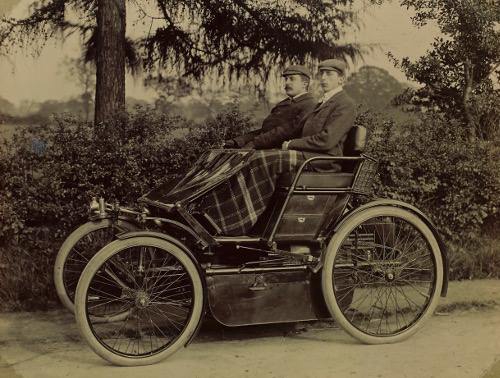
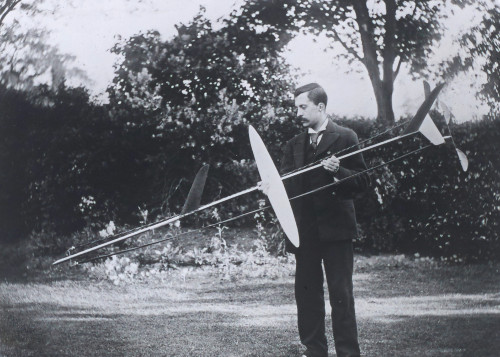
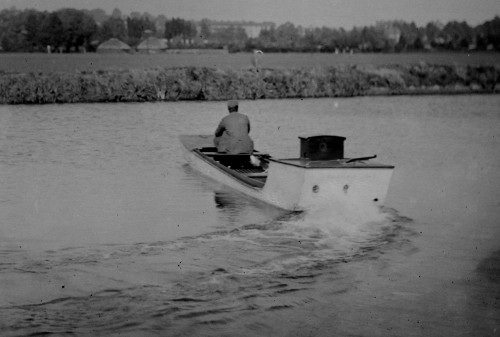
In 1930 the Birmingham Small Arms Company bought the Lanchester Motor Company and made it a subsidiary of Daimler, where Frederick Lanchester continued to set benchmarks in car design. His models were favoured by the then Duke of York and future King George VI. The last Lanchester cars were produced by Daimler in Coventry in the mid-1950s.
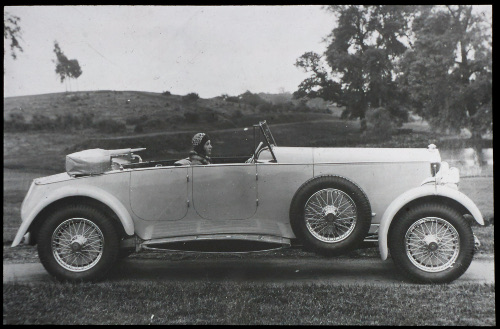
The project started in earnest in early 2016 to digitise much of the material in the collection, which is the largest Frederick Lanchester archive in the world. Although the project’s first phase (supported by the Heritage Lottery Fund and others) ends in April 2019, Coventry University will continue to support the project and the Lanchester Interactive Archive space (LIAS) that was created in its library to showcase Lanchester’s life and his work. The university will also explore more external funding to digitise further items.
The outreach work that has taken place during the project will carry on, such as the Lanchester Days held during Coventry Motofest, which include a variety of Lanchester cars parked outside the university library. Individuals and groups will still be able to visit the LIAS, which specialises in showcasing science, engineering, history and creative thinking. The project also celebrated in October 2018 the 150th anniversary of Lanchester’s birth.
Workshops tailored for any age group, and visits to schools, organisations, and communities will continue; and augmented reality (AR) and pop-up displays mean that the message can be taken outside the university.
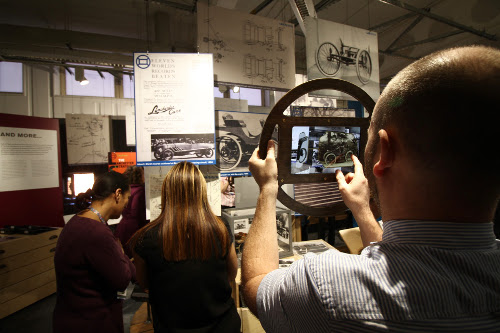
library, 2017. Coventry University.
The LIAS has touch screens that include interactive games and puzzles to explain the engineering and technical aspects of Lanchester’s work and his inventions, and visitors can point AR tablets at the exhibition images to produce additional information on the tablets. Visitors can also sit in a car built by one of the project consultants (Lanchester historian and enthusiast Chris Clark).
The project had its official launch in April 2017 and a special guest was Danella Bagnall, a former student at the university’s predecessor Coventry Polytechnic, who is now Executive Vice-President Product Engineering, Jaguar Land Rover (China/Asia Pacific Region).
Over 21,000 images from the collection will be available by April 2019 via the university’s online catalogue including personal and business correspondence, sketch books, pocket note books, copies of his patent applications, blueprints, copies and manuscript originals of his published works and a large collection of contemporary photographs of Lanchester cars and other vehicles.
Other items that have not been catalogued yet include Lanchester family papers, objects, and donations from individuals and organizations such as the Lanchester Trust, a charity that supports the university’s Lanchester collection work.
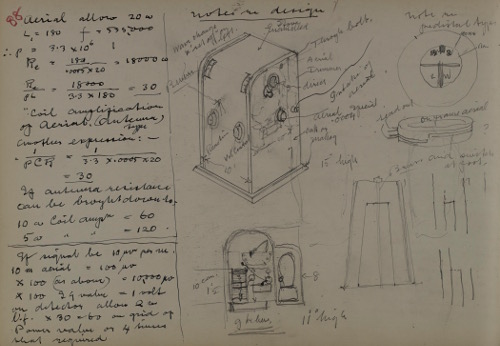
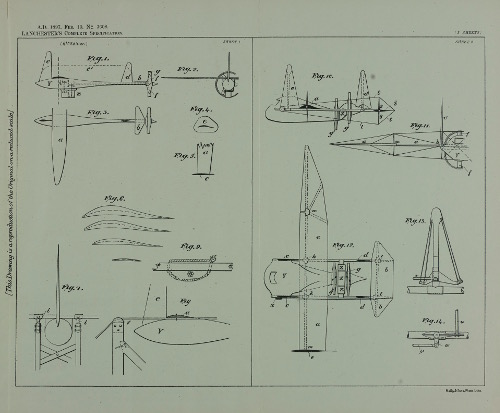
LAN/6/34/10].
The project has updated its catalogue on the Archives Hub website for the university’s Frederick Lanchester collection and more records will be added soon.
Gary Collins
Archivist, Coventry University
Bibliography
The Lanchester Legacy volume 1 1895-1931 Chris Clark (Coventry University 1995)
The Lanchester Legacy volume 2 1931-1956 Chris Clark (Lanchester Legacy Ltd 2016)
The Lanchester Legacy volume 3: a celebration of genius ed. John Fletcher (Coventry University 1996)
Browse all Coventry University archives collections on the Archives Hub.
All images copyright Coventry University (available via Creative Commons 4.0 license) and reproduced with the kind permission of the copyright holders.
